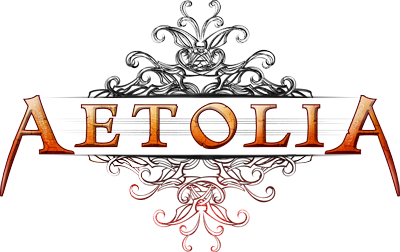3.11 Composer
The Composer is what allows you to write in Aetolia, whether it be news, books, or letters. Once you invoke some sort of writing via the WRITE command (see HELP WRITING) you are taken into the Composer. There is usually a delay before entering the Composer, as this removes you from the physical game world and should not be used to do things such as escape conflict. The main screen looks something like this:
-*- Composer -*- (*help for help)
-=-=- L1 =-=-=-=-=-=-=-=-=-=-=-=-=-=-=-=-=-=-=-=-=-=-=-
1 >
The "1 >" indicates the position of line 1 of the page/area you are writing on. Commands are prefixed with an asterisk (*). Anything you type that doesn't start with an * will be treated as text to be written.
An Example:
You are in the editor, you typed "This is the first line of my Journal" and then hit the enter key. You would see:
-*- Composer -*- (*help for help)
-=-=- L1 =-=-=-=-=-=-=-=-=-=-=-=-=-=-=-=-=-=-=-=-=-=-=-
1 > This is the first line of my Journal
2 >
You'll notice that a new line was added after hitting enter. If you were to type more text, it would start on this new line. You can type as much text as you like into a single line, and when you hit enter, the editor will split it into individual lines, roughly 70 characters long, so that it can be more easily read.
The following commands can be used while in the editor.
*help, *h
Usage: *help <command>
This will bring up the help screen within the editor. If you specify
<command>, then it will attempt to look up help on the specified
command.
*quit, *q, *exit, *x
Usage: *quit
This will end the current editing session. You will see this prompt:
Do you want to save? <yes/no/cancel>
Yes will save the text written on the page and leave the editor.
No will not save, but still leave the editor.
Cancel will not save and will not leave the editor.
*save, *s
Usage: *save
This will end the current editing session and bypass the question of
whether you want to save, and simply save your work.
*more, *m
Usage: *more
This will display any text that hasn't been displayed because of the
set screen length. It only displays text if there is text to be
displayed.
*echo, *e
Usage: *echo
This will display any text that is in the current session so you can
see exactly what is written.
*clear
Usage: *clear
This will erase all the text that is in the current session. It will
ask you if you are sure before doing so.
*line, *l
Usage: *line <line>
This will set the current editing line to the line specified by
<line>. <line> may be the number of the line to go to, or one of the
words "start" or "end", each of which goes to the corresponding line.
*insertline, *il
Usage: *insertline
This will insert a blank line after the current line.
*deleteline, *dl
Usage: *deleteline [<line>]
This will permanently delete the current line (or the line specified)
*overwrite
Usage: *overwrite
This sets the current method of editing to overwrite, which means
that any lines that may be below the current line will be replaced
with any new lines that are typed.
*insert
Usage: *insert
This sets the current editing mode to inserting, which will insert
new text in front of any lines that may be below the current line.
*replace, *r
Usage: *replace <line> <text>
This will replace the given line number with the text given. <line>
must be a number. Note that this does not change your current editing
line. For instance, you can be editing line 7, and replace line 3,
but you are still editing line 7 after the replacement happens.
See Also: HELP WRITING, HELP LETTERS, HELP LIBRARIES, HELP NEWS